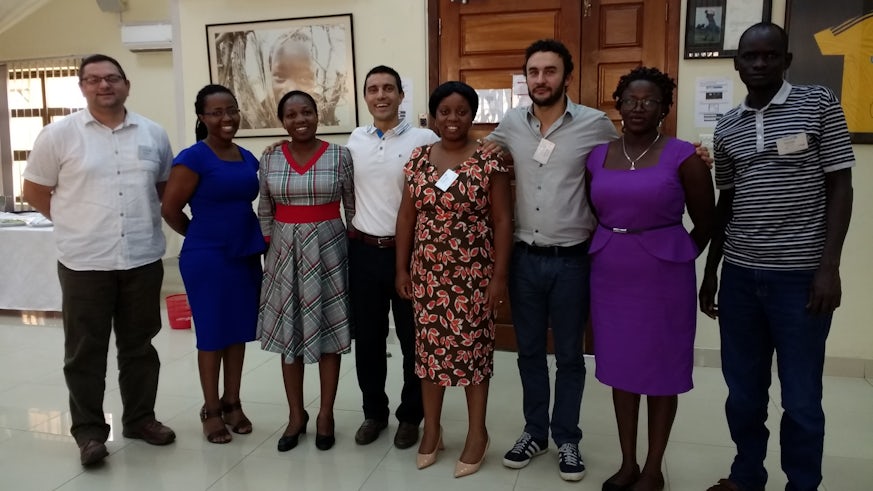Building research capacity in Uganda
16 January 2018

Dr Marco Pomati and Dr Shailen Nandy recently ran a training workshop in Kampala, Uganda as part of a project that seeks to build research capacity in low and middle income countries.
The workshop, part of a project funded by the Economic and Social Research Council (ESRC), was hosted by UNICEF Uganda and organised by Dr Diego Angemi, Chief of Social Policy and Advocacy of UNICEF Uganda. Dr Pomati led a two-day course on the measurement of poverty and deprivation in Uganda using national surveys. Additionally, Dr Nandy delivered an interactive presentation comparing Socially Perceived Necessities in Uganda and the UK.
In order to achieve Uganda’s aims of becoming a middle-income country by 2020, policy makers are currently in need of reliable data on poverty and deprivation in order to identify the country’s developmental challenges. To aid this, Dr Pomati shared with workshop attendees his experience of data analysis and validation of living standards measures which can impact policy making.
On discussing the need for improved data quality and availability, Dr Angemi said: “Needless to say, this work will make a significant impact, through the production of better data for analysis, to inform poverty prevention and reduction policies to improve the lives of millions of children in Uganda and globally.”
Despite its existing development needs, Uganda currently plays host to around 1.5 million refugees from the conflicts in South Sudan, Burundi and the Democratic Republic of the Congo. At the workshops, attendees discussed how the situation of refugees in Uganda could be assessed and addressed through the collection and analysis of data.
During the visit, Dr Nandy also gave a presentation at UNICEF to an invited audience of development professionals, policy makers, and local NGOs as part of UNICEF’s Speaker Series, bringing together and engaging researchers, policy makers and the wider public.

“As a young researcher, this was an exciting opportunity to develop my growing network of collaborators and develop further research ideas with some of the best applied policy researchers in Uganda. On the last day, the attendees and I sat together and began working on a research proposal to be submitted to the Wellcome Trust in January.”
Workshop attendees came from the Economic Policy Research Centre (EPRC), Uganda’s leading policy think tank. Their work focuses on economic and development policy as well as agriculture, education, governance, health and poverty. The not-for-profit organisation informs government and policy makers about national development issues in Uganda.
Cardiff University has been collaborating with EPRC, UNICEF Uganda and the Uganda Bureau of Statistics since 2016. The work has focused on developing measures of multidimensional poverty in adults and children according to national definitions in order to track progress towards international Sustainable Development Goals. The collaboration is developing socially-realistic indicators of poverty which go beyond traditional money-metric measures.





